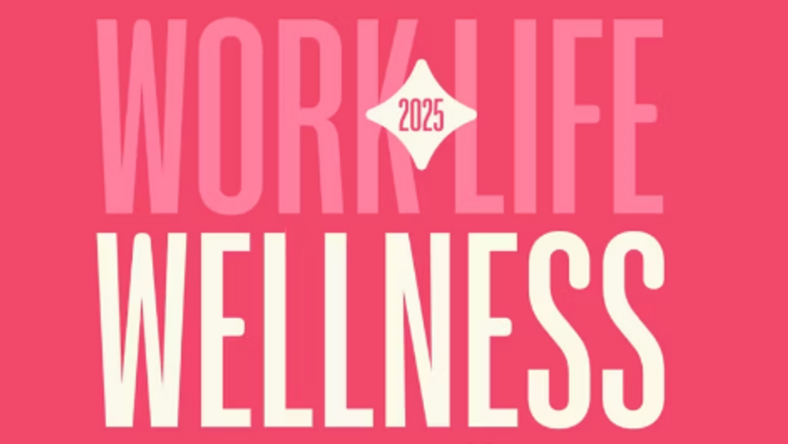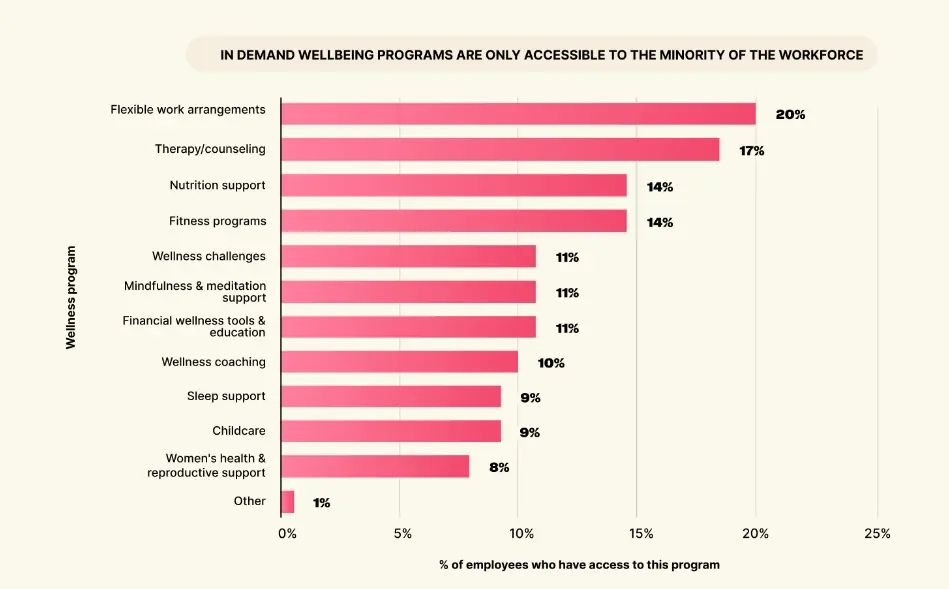
New findings from Wellhub’s State of Work-Life Wellness Report demonstrate Gen Z’s affinity for mental well-being and supportive practices
Corporate wellness platform Wellhub (formerly Gympass) has discovered that work stress is the top threat to employee wellness, surpassing inflation woes, information overload, and AI-related anxiety.
The corporate wellness platform surveyed 5,000 global employees between May and June 2024 for its State of Work-Life Wellness Report, revealing several noteworthy findings:
- Nearly half (47%) of those surveyed say work stress is the primary cause of their deteriorating mental health
- 83% would consider leaving their current employer due to a lack of focus on well-being — a significant increase from 68% in 2022
- A sizable (88%) amount of employees say well-being support is as important to them as their salary, yet many feel employers are lacking
- While most employees across several generations report work stress as their top cause of mental health decline, Gen Z appears to be struggling the most (54%) compared to Millennials (49%) and Gen X (48%). However, inflation was found to be the primary concern for Baby Boomers (42%)
- Gen Z staffers are more likely to prioritize therapy and mindfulness in order to manage work stress, whereas Baby Boomers are less engaged in such practices
- 89% of employees say they will only consider companies that prioritize employee well-being when seeking a new employer
- Companies that invest in wellness programs are sure to please Gen Z employees, as Wellhub finds they are most actively engaged in maintaining their mental wellness. One revealing stat is that half (50%) of Gen Z respondents are in therapy. They are also most likely to meditate with apps (26%), in classes (20%), or through self-guided sessions (20%)
While some statistics may seem grim, Wellhub highlights that companies offering employees access to wellness programs are appreciated and widely utilized. The corporate wellness platform found that 79% of employees with access to therapy and counseling, flexible work arrangements, fitness programs, financial wellness tools and education, women’s health and reproductive support, and childcare support are actively engaged in these benefits.

For employers, offering wellness programs boosts employee well-being, productivity, and engagement. The report shows that 69% of employees with a well-being program rate their overall well-being as good or thriving, compared to 53% of employees without such a program. Additionally, 59% of employees with a wellness program reported improvements in their wellness over the past year, compared to 38% of those without a program.
“Our research underscores an unavoidable truth for HR and business leaders: work-related stress is the leading cause of declining mental health for employees across generations,” Wellhub CEO Cesar Carvalho said. “Ignoring this not only impacts individual well-being but also carries significant costs for businesses in lost productivity and turnover. Well-being is no longer a perk; it’s a core business strategy. Leaders must prioritize holistic wellness support to build resilient, productive and engaged workforces.”
Wellhub’s State of Work-Life Wellness Report can be found here.
